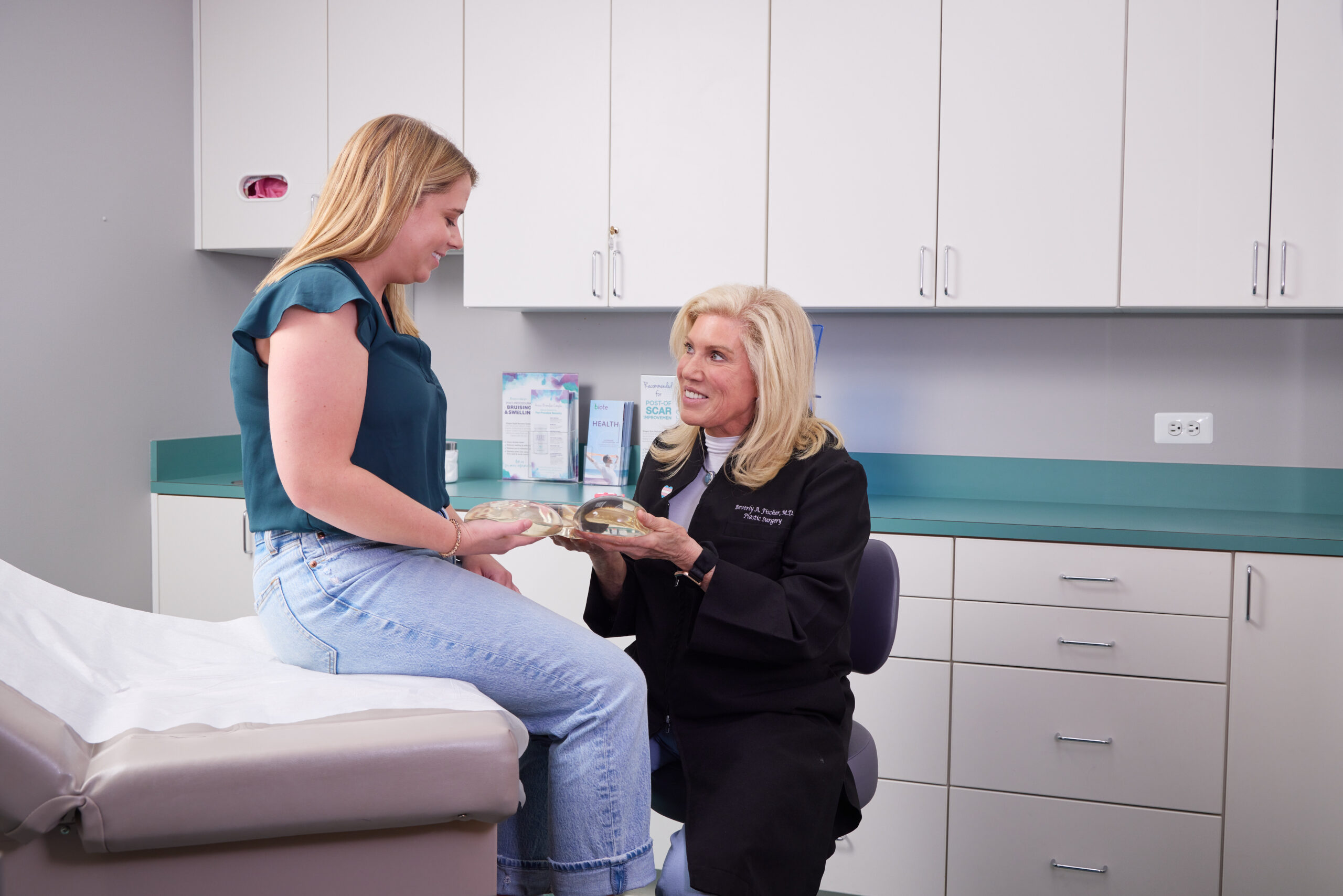
Does Breast Reduction Surgery Affect Breastfeeding?
By Beverly Fischer on September 13, 2022
Breast Back to Blog
Back to Blog


It’s funny how breasts can often look better on the other side of the fence. Some of us wish we had larger breasts. Some of us wish they were closer together. And some of us with breasts that are larger and closer together would like for them to be smaller. It’s hard to understand why people want the breasts they want without living in their bras for a moment.
When it comes to larger breasts, there are some very important reasons why many women would like to reduce their size.
Why Get Breast Reduction Surgery?
Large breasts can be a large nuisance, even when they’re beautiful. Women who struggle with larger breasts also struggle with many physical and psychological issues, including the following:
- Chronic back, neck, and shoulder pain that often requires pain medications
- Chest wall pain
- Ongoing rashes or skin irritation beneath or between the breasts
- Headaches from tension in the body
- Poor posture
- Deep bra strap grooves
- Nerve pain with numbness and tingling in the hands
- Shortness of breath
- Sleeping trouble
- Self consciousness or even a poor self-image
- A feeling of being disproportional
- Difficulty fitting into bras and clothing
- Limited activity
For these reasons and more, half a million breast reduction surgeries, also called breast mammoplasties, are performed globally each year. Women who undergo these procedures are usually thrilled with the results and wish that they had had the surgery sooner. Since breast reduction surgery lifts the breasts, it provides immediate relief from the pressure that was weighing on their neck, back, shoulders—and mind.
Does Breast Reduction Surgery Affect Breastfeeding?
If you’re considering this surgery you’ll be happy to know that many women can have this type of plastic surgery after birth and breastfeed successfully after the procedure. The amount of milk produced during breastfeeding depends on the amount of milk-producing tissue, which is relatively consistent among women, regardless of the size of their breasts. Larger breasts do not produce more milk since the size difference is created by the amount of fat as well as other non-milk producing elements in the breast. So reducing your breast size by itself does not reduce milk production.
However, it’s important to speak with your surgeon to clearly identify your overall goals. Breast reduction surgery can impact milk production when it affects the connections between the nerves and milk-producing tissues. How much those connections are cut can affect milk production later. When you talk with your surgeon, you’ll want to discuss your optimal breast size and your plans to breastfeed. Then your doctor can help you maximize your breastfeeding capabilities by deciding the right course of action regarding the amount of tissues removed, which incisions are required, and how the nipple is moved.
Know Your Options
If you’re concerned about breastfeeding in the future, your surgeon might recommend a smaller reduction to increase your chances of success. These smaller procedures often only include liposuction, eliminating the need for an incision. Or they’ll just require one discrete cut around the nipple and toward the breast crease. Typically, your surgeon will also decrease the size of the areola and move it higher on the chest. This can usually be achieved while keeping the milk ducts, nerves, and important connections (nipple-areola complex) intact and therefore ensure a higher rate of successful breastfeeding.
100% Breastfeeding Success!
Don’t let fears about breastfeeding stop you from getting the surgery you want and need! In 2017, a study incorporating 51 research papers on breastfeeding and breast reduction found that when the nipple-areola complex was kept attached, there was a 100 percent breastfeeding success rate. You literally cannot beat that! Fortunately, if the complex was only partially intact, breastfeeding was still possible 75 percent of the time. When it was fully detached, four percent of women were still able to breastfeed. So the success of breastfeeding comes down to keeping that area partially or fully attached during the surgery.
Dr. Beverly Fischer and her team at the Advanced Center for Plastic Surgery understand the importance of keeping your breastfeeding capabilities intact. We have been performing successful breast reduction surgeries for over 25 years and will help you get the breasts and the breastfeeding you desire.
Breast reduction surgery can change your life. It can eliminate the backaches, neck aches, shoulder aches, headaches, frustrations, itchiness, nerve pain, tingling, and more that come with large breasts. Fortunately with a little planning, you can have breast reduction surgery that allows you to breastfeed with ease. Talk with us today about your goals, and we’ll help you achieve the win-win of a happy mom and happy baby. And the breasts won’t look better on the other side of the fence anymore, because you’ll be thrilled with yours.
{{cta(‘1d800f58-b19c-4590-a7cd-1499c5415b4f’,’justifycenter’)}}
Dr. Beverly A. Fischer is passionate about her role as a leading female plastic and cosmetic surgeon in Baltimore, Maryland and beyond. She believes that plastic surgery makes a positive, life-changing difference, whether you’re renewing your body, face, and skin or embarking on an entire gender transition.
Reach out
We are happy to answer any questions you have. Use the form to request a consultation or more information about specific services. A member of our team will will contact you shortly.
Contact Us



